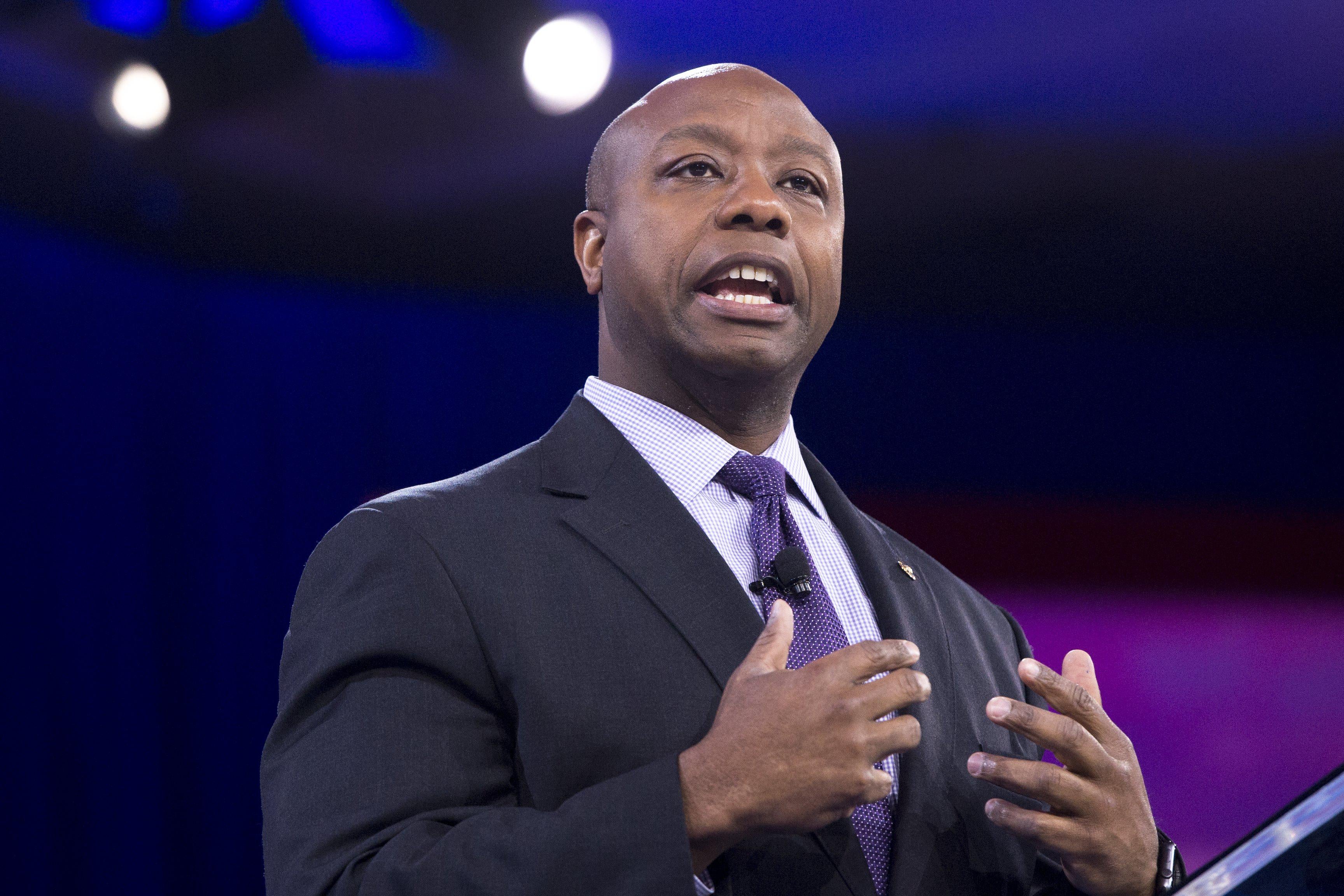Ryan Bounds’ nomination to the 9th U.S. Circuit Court of Appeals was derailed on Thursday when South Carolina Sen. Tim Scott announced he could not support the nominee because of his history of racist writing.
Donald Trump nominated Bounds, who currently serves as an assistant U.S. attorney, to the 9th Circuit in September. A staunch conservative, immigration hardliner, and member of the Federalist Society, Bounds appeared to be coasting to an easy confirmation until the liberal group Alliance for Justice uncovered bigoted statements he made as a Stanford student in the 1990s. Among other inflammatory claims, Bounds wrote that:
• multicultural groups on campus “divide up by race for their feel-good ethnic hoedowns.”
• “race-focused groups” should be abolished, as the “existence of ethnic organizations is no inevitable prerequisite to maintaining a diverse community—white students, after all, seem to be doing all right without an Aryan Student Union.”
• “strident racial factions in the student body … seem always to contribute more to restricting consciousness, aggravating intolerance, and pigeonholing cultural identities than many a Nazi bookburning.”
• some campus communities think that the “opponent” is “the white male and his coterie of meanspirited lackeys: ‘oreos,’ ‘twinkies,’ ‘coconuts,’ and the like.”
• “Expelling students [found guilty of rape] is probably not going to contribute a great deal toward a rape victim’s recovery; there is no moral imperative to risk egregious error in doing so.”
Bounds did not disclose these past statements to the Senate Judiciary Committee. After they came to light, he apologized for his “obnoxious tone and misguided sentiments.” That, apparently, satisfied the committee’s Republicans, who approved his nomination on a party line vote. Ever since, the two Democratic senators from Bounds’ home state of Oregon have struggled to peel off the single Senate Republican necessary to sink his nomination. (With John McCain absent indefinitely, the chamber is divided 50–49.) On Wednesday, they succeeded, as Scott declared his opposition to Bounds. Sen. Marco Rubio quickly joined him, and Senate Majority Leader Mitch McConnell withdrew the nomination.
A handful of Republican senators, John Kennedy chief among them, have balked in the past over Trump’s more questionable nominees. Kennedy successfully tanked the nomination of Brett Talley (who appears to have defended the first KKK), Jeff Mateer (who called transgender children evidence of “Satan’s plan”), and Matthew Petersen (who flubbed a basic law quiz). But none of these nominees ever reached a floor vote, as an embarrassed White House quietly yanked their nominations before they reached that stage. Talley, Mateer, and Petersen were notable exceptions to Trump’s successful effort to stack the courts with dogmatic conservatives. Thanks to Republican cooperation, the president has already appointed 23 judges to the courts of appeals and 20 district court judges, far outpacing his predecessors.
Bounds is the first Trump judicial nominee to fail to get approval on the Senate floor, an outcome that will undoubtedly empower Democrats steeling themselves for the fight over Supreme Court nominee Brett Kavanaugh. But the reason for Bounds’ ouster is more telling than the ouster itself. Unless they can uncover flagrant racism in the nominee’s past, Senate Democrats shouldn’t expect an eleventh hour defection to save them from a Justice Kavanaugh.
Read more from Slate:
• Brett Kavanaugh’s Legal Opinions Show He’d Give Donald Trump Unprecedented New Powers
• Trump Shows That if You Challenge the Truth Long Enough, Reality Will Conform to Your Delusion
• Republicans Just Refused to Spend More to Secure States’ Vulnerable Election Systems
• Michelle Obama Launches Splashy Midterm Effort, but Not the One Democrats Wanted
